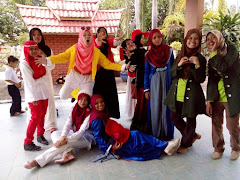
Chapter 1 Notes
1) Chemistry and Its Importance.
What is Chemistry? - Chemistry is the study of the composition, structure, properties and interactions of matter.
Examples of common chemicals used in daily life -
1) Chemistry and Its Importance.
What is Chemistry? - Chemistry is the study of the composition, structure, properties and interactions of matter.
Examples of common chemicals used in daily life -
Vinegar
|
Salt
|
a. Salt/ Sodium Chloride
b. Vinegar/ Dilute Ethanoic Acid
c. Calcium Carbonate
d. Water
e. Oxygen
f. Nitrogen
g. Carbon Dioxide
h. Iron(II) Sulphate
i. Aspirin
j. Calcium Sulphate Hemihydrate (used as a cast to support broken bones)
k. Copper-nickel Alloy (to make coins)
l. Urea
m.Sulphuric Acid
n. Ethanol
o. Sodium Stearate (for soap)
Examples of careers related to chemistry -
Pharmacist
|
Engineer
|
a. Chemical Engineer
b. Doctor
c. Geologist
d. Pharmacist
e. Biochemist
Chemical-based industries in Malaysia and their contributions -
a. Chemical based industries are important because..
1 - Responsible for the manufacture of a vast range of useful products. These products helps us to improve our health and standard leaving.
2 - Important for the development of our country
3 - Provide jobs
4 - Supports other industries in Malaysia - example, automobile industry
2) Scientific Method
Scientific Method - A systhematic method used to solve problems in science.
Steps involved in a scientific method:
1) Making Observations - using our five senses (sight, hearing, smell, taste and touch)
2) Making Inference - a smart guess made based on our observation
3) Identifying problem - written in a form of a question (?) based on the inference made
4) Making hypothesis - a general statement based on the relationship between a manipulated variable and a responding variable.
5) Identifying variables - manipulated, responding and constant (fixed) variables to test the hypothesis made
6) Controlling variables - deciding on how to manipulate the chosen variable, what to measure and how to keep a fixed variable constant
7) Planning an experiment - deciding what materials&apparatus to use; procedure of an experiment; method of collecting data and ways to analyse and interpret the data
8) Collecting data - making observations and mesurements. record them in a form of a table.
9) Interpreting data - organising and analysing a data (graph, charts)
10) Making conclusion - making a statement about the outcome of the experiment and whether the hypothesis is accepted/rejected.
11) Writing a report
Incorporate scientific attitudes and values in conducting scientific investigations.
Examples:
- Patience
- Rational
- Careful
- Analytical
- Critical
- Diligent
- Persevering
These abilities not only increases the validity of investigations and chemistry knowledge, but it also enchance one's thinking and abilities to solve a problem.















